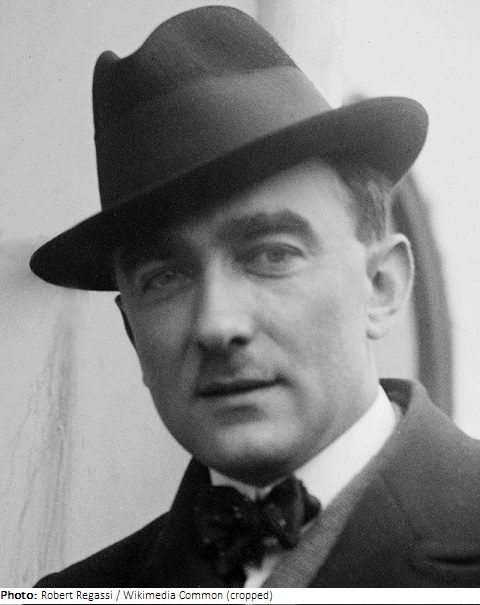
| Roles | Referee |
|---|---|
| Sex | Male |
| Full name | Karol Maciej•Szymanowski |
| Used name | Karol•Szymanowski |
| Born | 6 October 1882 in Tymoshivka, Cherkasy (UKR) |
| Died | 29 March 1937 (aged 54 years 5 months 23 days) in Lausanne, Vaud (SUI) |
| NOC |  Poland Poland |
Karol Szymanowski grew up in a musical environment as the son of a cultivated landowner in Ukraine. He began playing the piano and composing at an early age. In 1901 he went to Warsaw, where he studied harmony, counterpoint, and composition until 1904. Together with others, he founded the Young Polish Composers’ Publishing Company in Berlin, which published new works including his own.
Szymanowski’s first major orchestral works were initially strongly influenced by German Romanticism, particularly by Richard Wagner (1813-1883) and Richard Strauss (1864-1949). His First Symphony premiered in Warsaw in 1909; dissatisfied, however, he withdrew it from further performances. In 1911, he completed his Second Symphony, showing a stylistic shift from German to Russian influences. After a stay in Vienna (1911-12) and trips to Italy and North Africa, Szymanowski lived in his native Tymoshivka until 1917 writing his Third Symphony. His violin works were premiered during concerts in Moscow and St. Petersburg. Around this time, a new stylistic shift toward French Impressionism took place in his music.
During the Russian Revolution, the family estate was destroyed, and Szymanowski lost most of his possessions. Until 1919, he lived in Elizavetgrad (now Kirovohrad, UKR) and stopped composing for almost two years. In 1920, he went to Warsaw and shortly thereafter made a concert tour of the USA.
Upon his return, Szymanowski established himself as one of Europe’s most important composers. He was director of the Warsaw Conservatory from 1927-29 and rector of the Warsaw Academy of Music from 1930-32. Significant works from this period included his Stabat Mater (1925-26) and the ballet-pantomime Harnasie (1923-31), based on the life and music of the mountain people of the Tatras. In 1932, Szymanowski was the soloist at the premiere of his Fourth Symphony, the Symphonie concertante for piano and orchestra in Poznan. Severely weakened by chronic tuberculosis, he spent his last days in a sanatorium in Lausanne.
Szymanowski considered himself homosexual. His opera Król Roger (1918-24) is also full of homoeroticism. His fragmentary preserved pederastic novel “Efebos” is about the same-sex love story of the main character. In 1919, Szymanowski began a relationship with the poet and dancer Boris Kochno (1904-1990), then only 15 years old. The relationship ended when Kochno fell in love with the impresario Sergei Diaghilev (1872-1929).
| Games | Sport (Discipline) / Event | NOC / Team | Phase | Unit | Role | As | |
|---|---|---|---|---|---|---|---|
| 1924 Summer Olympics | Art Competitions |  POL POL |
Karol Szymanowski | ||||
| Music, Open (Olympic) | Final Standings | Judge |